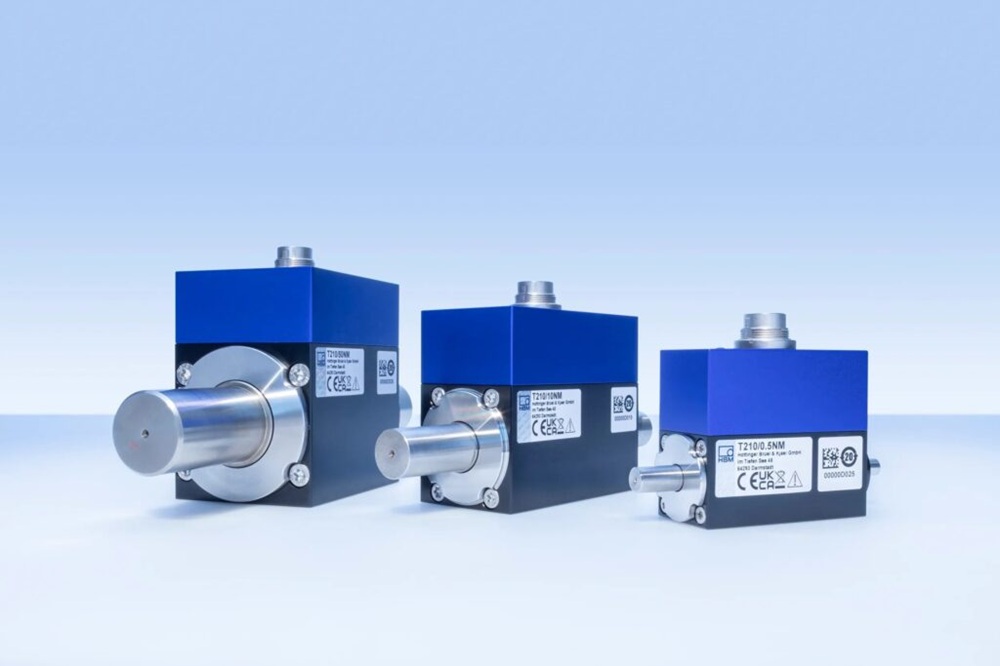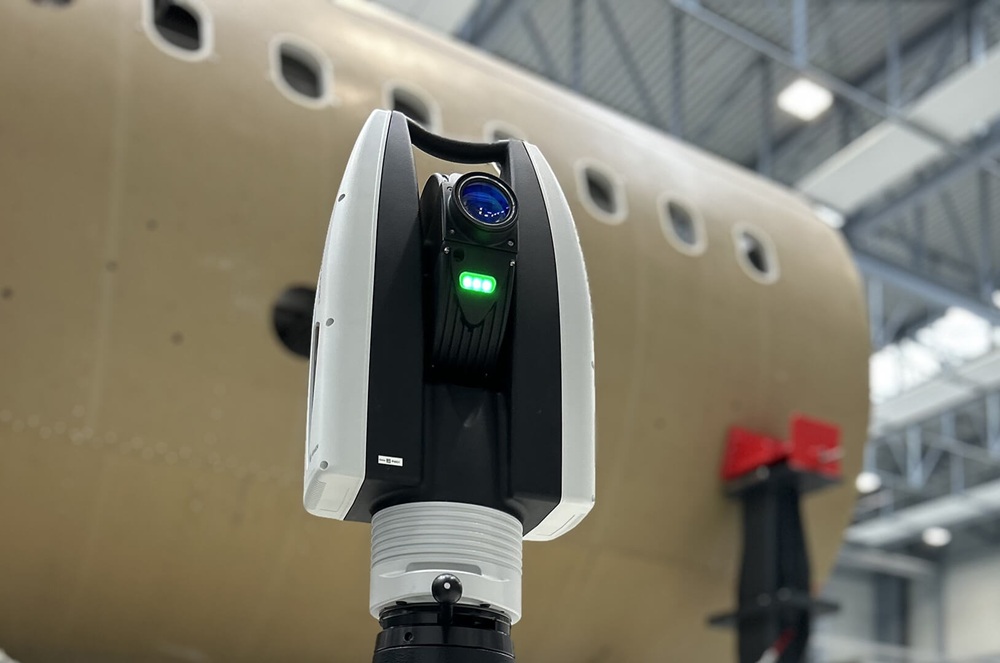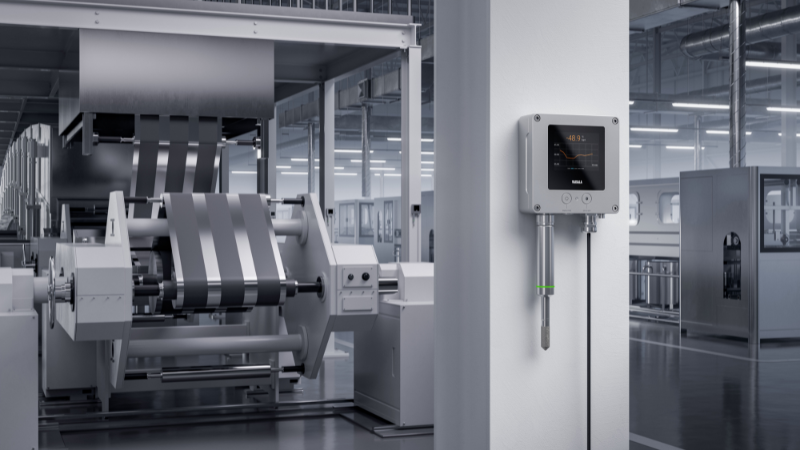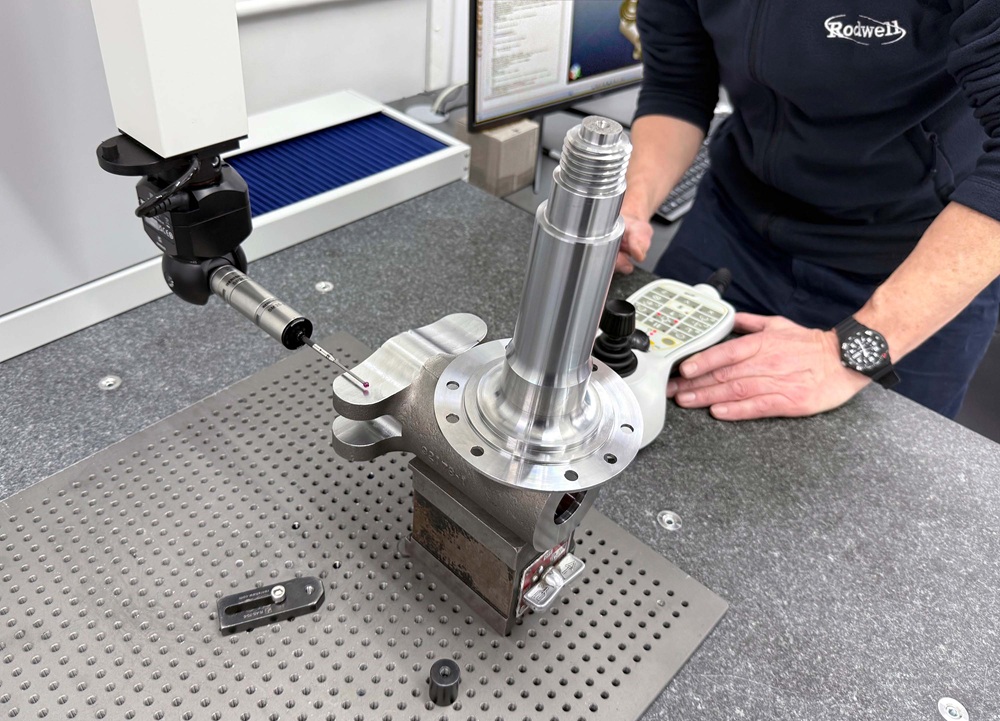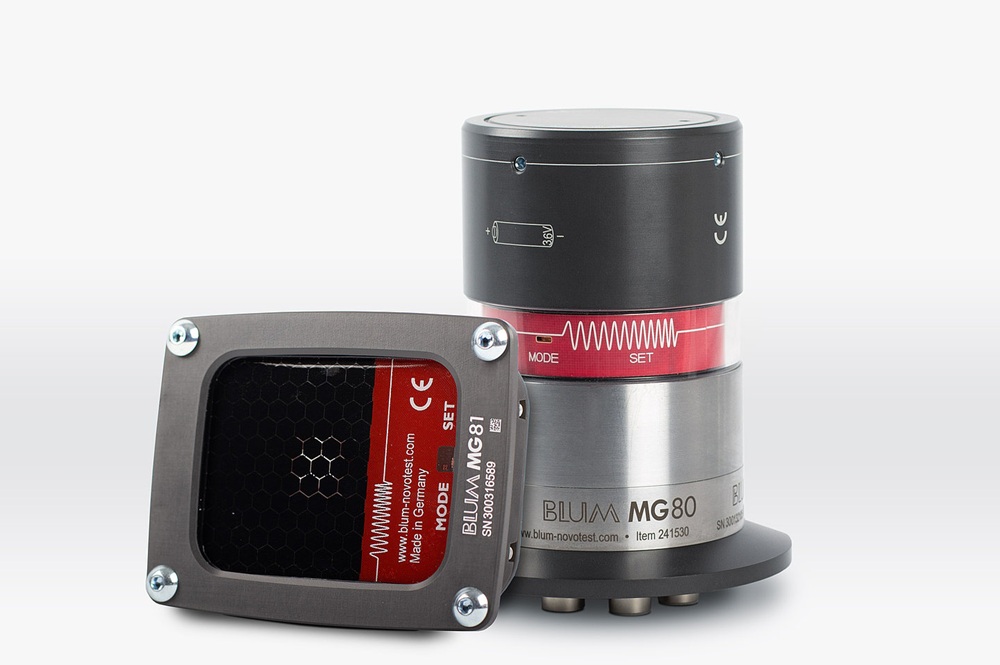Global test and measurement expert Hottinger Brüel & Kjær (HBK) has added IO-Link functionality to its T210 torque sensor, helping engineers perform R&D and end-of-line torque testing more efficiently while simultaneously streamlining their processes.
The T210 provides precise torque, rotational speed, angle and power measurements in a compact, easy-to-integrate format. Each unit is delivered with an individual test report and is suited to a wide range of industries, including automotive, machine building, and high-end appliance and commercial goods sectors.
IO-Link is a fieldbus-independent, standardised communication interface that allows for digital, bidirectional point-to-point data exchange. Using standard M12 cables, the T210 can be quickly integrated into existing systems and connected to an IO-Link master. The IO-Link master manages protocol conversion and makes real-time measurement data available to all common fieldbus and automation systems, including EtherCAT and Profinet.
The new IO-Link interface enables the digital transmission of not only measurement data but also extensive process, diagnostic and statistical information – making it easier to optimise processes and analyse performance in different applications.
Compact and strain-gauge based, the shaft-style T210 is designed for easy integration into test benches, automation systems or direct connection to the device under test. Its non-contact energy and signal transmission system ensures long-term reliability and high measurement precision, reports HBK.
Along with the new IO-Link interface, the torque sensor includes voltage and frequency outputs for torque, speed and angle, giving engineers flexibility across a wide range of applications, from development testing to automated end-of-line testing.
The T210 is available in nine nominal torque ranges from 0.5 to 200 Nm, and can be paired with a variety of accessories, including cables and bellows couplings.
More information www.bit.ly/44pXScv






